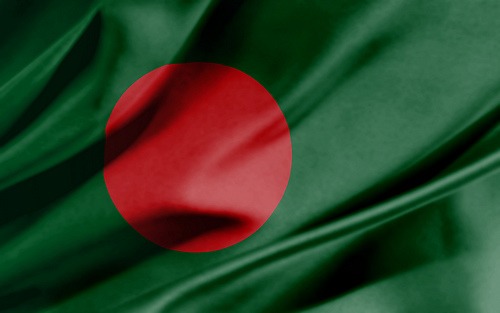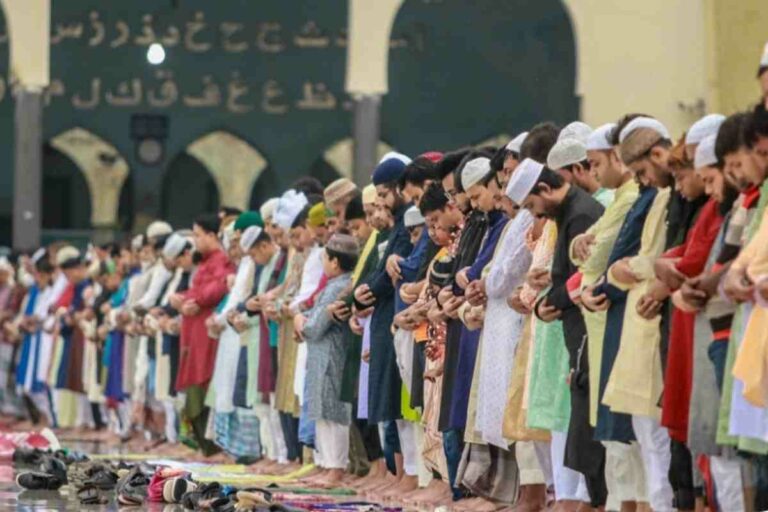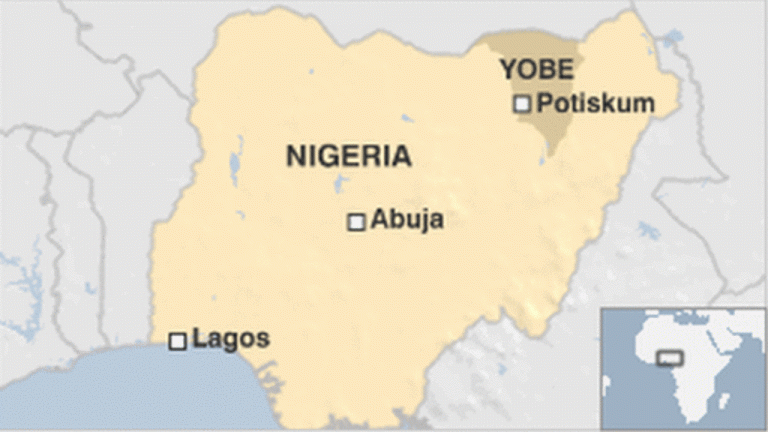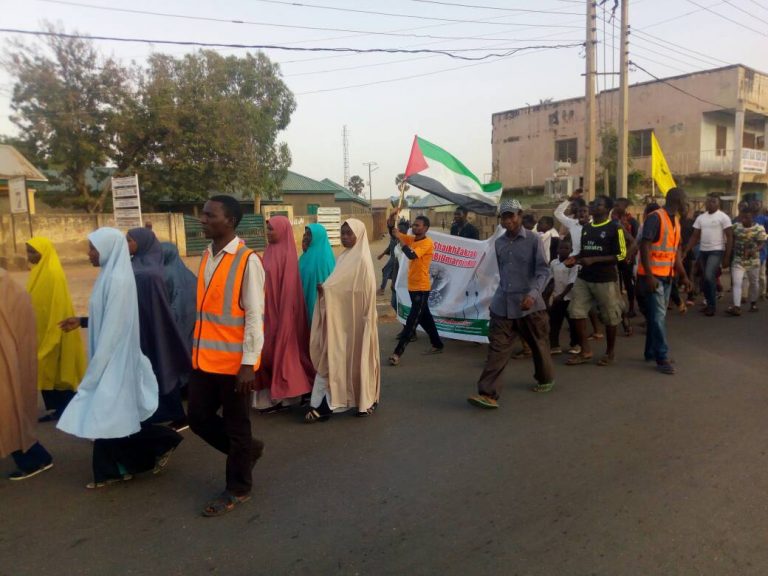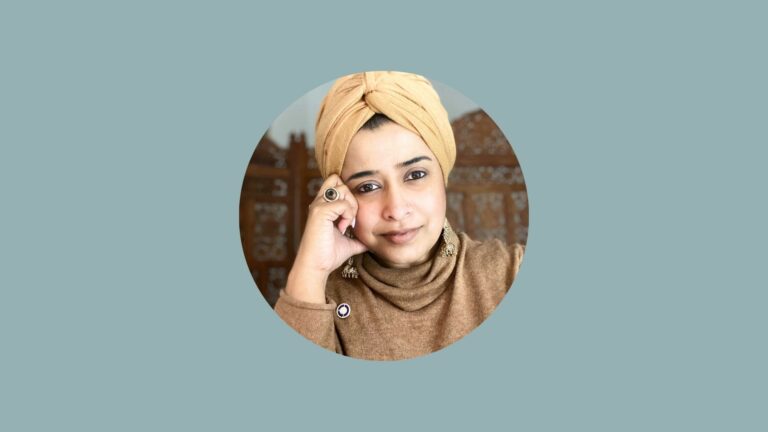Contents
1. Action Required
2. Summary
3. Background
4. Sample Letters
5. Addresses for Sample Letters
1. Action Required
Please write to the High Commissioner of Bangladesh in your country, the Foreign Minister of Bangladesh and to the Prime Minister of Bangladesh as a matter of urgency and demand a fair trial for the the Jamat-e-Islaami activists who have been implicated in alleged war crimes they claim to have not committed.
2. Summary
The Bangladeshi Jamaat-e-Islaami (JI) is the largest Islamic political party in Bangladesh calling for the establishment of Islamic law in the country and hence has been enduring extreme opposition from the nationalist secular ruling party of Awami League (AL). AL has been accuse of actively curbing all political opposition. Hence, the AL has arrested and detained several top leaders of JI under the International Crimes (Tribunals) Act 1973 for alleged war crimes committed during the 1971 war of independence. The trials are reported to be severely unjust and a matter of collusion between the state and the judiciary. Several JI members have been sentenced to death even though they deny any involvement in war crimes. Their only ‘crime’, they claim was their open opposition of the separation of East and West Pakistan into independent states. The war that created Bangladesh saw heinous war crimes committed, however these trials have raised serious concerns about due process, and politically motivated prosecutions.
3. Background
Jamat-e-Islami (JI) is one of the largest Islamic political parties in the world today. To understand the plight of JI’s activists in Bangladesh, we need to understand why and how this party became established and what are its prime objectives. It is also necessary to briefly look at the struggles of its founder, the famous scholar of the sub-continent, Sayyid Abul Ala Maudodi .
Central to its ideology is the creation of one Islamic state through the establishment of the Shariah (the Islamic legal system), development of close relations with Muslim nations and ridding society of unIslamic practices. It was absolutely essential for the Jamaat to keep the East and West Pakistan united under the banner of one God, one Prophet, one Ummah, because Muslim brotherhood is the essence of the Islamic state. The party faced a lot of opposition soon after the creation of Pakistan, nevertheless it was through the struggles of JI, under the leadership of Maudoodi that the government of Pakistan adopted the Objective Resolution of being declared an Islamic state in 1949 and then after more struggle the country enforced the Islamic constitution in 1956. This change was short-lived as Pakistan as the military dictatorship came into power was immediately attacked by anti-Islamic forces and the constitution was abrogated in 1958. With the disintegration of Pakistan into Pakistan and Bangladesh in 1971 after a brutal civil, the ongoing backlash against JI continued.
Sheikh Mujib ur Rahman set led the Awami League (AL) as the first ruling party in Bangladesh. Over the years the AL gained ground and became stronger. Since its last election in December 2008 it has become the most powerful ruling party in Bangladesh, and has reportedly come down hard upon any opposition group or party, including JI. Ji’s opposition to the splitting up of Pakistan has been used as the basis of some the accusations of war crimes against some of its senior leadership. Whilst crimes committed by pro-Pakistan forces in particular need to be answered for, there is deep and credible concern that ‘International Crimes Tribunal’ set up under AL to carry out war crime trials against the top leadership of JI is politically motivated and that many of the prosecutions are baseless.
The Bangladesh government has reportedly sought assistance from the US to supposedly help it set up an ‘open and transparent war crimes trial with the rights of defence for the accused’. However, numerous reports relate that the reality is the complete opposite of this statement and that the trials are blatantly unfair and a mere mockery of justice. The court has been condemned for being attached to the government, and hence, incapable of delivering impartial judgements. According to reports there has been collusion between judges, prosecutors and government ministers to convict JI leaders. Further, everything, from the selection of witnesses to the documents admitted as evidence in court, has been carefully selected.
Yet again as history repeats itself, the JI activists stand accused of charges they claim not to have committed: war crimes such as mass murders, rape, arson, torture, abduction and conspiracy against the state to name a few. JI is of the opinion that these charges are politically motivated due to the party’s open opposition of the separation of East and West Pakistan in 1971.
Several top leaders of JI have been sentenced to death and many are lined up to go on trial.
Ghulam Azam, the Ameer of the Jamaat till 2000 was handed down a 90 year prison sentence on 15 July 2013, for ‘conspiring and planning to commit genocide’ in the war. During the war of independence he supported a unified Pakistan, but opposed the widespread killing of Bangladeshi civilians by the Pakistani army. There has been a severe lack of transparency in his case. His health has deteriorated considerably in prison, according to his wife, and he is denied proper family visits and access to books.
Similarly, Ali Ahsan Mohammad Mujahid, Secretary General of JI in Bangladesh was also convicted of war crimes such as genocide, torture and abduction by ICT, and sentenced to death on 17 July 2013. Further, Jamaat Deputy Chief, Delwaar Hussein Sayadee and Assistant Secretary General Muhammad Kamaruzzaman were convicted and sentenced to death on similar charges in 28 February 2013 and 9 May 2012 respectively.
Human Rights organisations have detailed the brutal human rights violations carried out by the AL government including extrajudicial killings, torture, arbitrary detentions, and suppression of free speech. There has been widespread turmoil in the country as the ICT trials continue, clashes and fighting have been reported amongst pro-Islamic protestors, anti-Islamic factions and security forces. Mass killings of civilians have been reported in the country in May 2013 over protests to curb anti-Islamic movements and activities.
Please write to the High Commissioner of Bangladesh in your country, the Foreign Minister of Bangladesh and to the Prime Minister of Bangladesh as a matter of urgency and demand a fair and free trial for the JI activists.
4. Sample Letters
——————————————————————————————
Sample letters are given below for your convenience. Please note that model letters can be sent directly or adjusted as necessary to include further details. If you receive a reply to the letter you send, we request you to send a copy of the letter you send and the reply you received, to IHRC. This is very important as it helps IHRC to monitor the situation with regards to our campaigns and to improve upon the current model letters.
a. Letter to the High Commissioner of Bangladesh to your country
[Your Name]
[Your address]
H.E. Mohamed Mijarul Quayes
H.E. Mohamed Mijarul Quayes
Assalam Alykum Warahmatullahi Wabarakatuhu
Re: Concerns over the indictment and trial of Jamat-e-Islami leaders
I am writing to convey my dismay over the sentencing of activists of Bangladesh Jamaat-e-Islaami, over alleged war crimes committed in the 1971 war of independence. I demand that all those held should be granted a fair trial.
The ruling Awami League government of Bangladesh has sought to prosecute leaders and activists of the Jamaat under the International Crimes (Tribunals) Act 1973 on alleged charges of war crimes such as genocide, torture and conspiracy against state, which the members categorically deny. Some notable figures of the Jamaat who have been sentenced include 90-year-old Professor Ghulam Azam, Ameer of the Jamaat, Ali Ahsan Mohammad Mujahid, Secretary General, Delwaar Hussein Sayadee, Deputy Chief and Muhammad Kamaruzzaman, Assistant Secretary General.
I am deeply concerned that the International Crimes Act 1973 is being used as a political tool to weaken the opposition rather than to ensure justice. I have read reports that the trials are not impartial and there is no separation of powers between the court and the government. Rather, there has been alleged collusion between judges, prosecutors and government ministers to convict the accused. I have also read that witnesses and documents submitted as evidence in court were carefully selected to serve the ruling party’s purpose. The ICT trials are seen by many as a mockery of justice and renowned human rights organizations and eminent lawyers have condemned the proceedings.
Further, I demand an explanation as to why the Jamaat leaders are being charged and tried 40 years after the war? How and where was the ‘evidence’ of their alleged crimes discovered? Why was it kept in secrecy for 40 years?
I am also deeply disturbed by your government’s alleged use of force against supporters of the Jamaat who are protesting against the trials and other issues of concern. There have been horrific reports of mass killings of civilians demonstrating against the state. Human Rights organisations have detailed the brutal human rights violations carried out by the Awami League government including extrajudicial killings, torture, arbitrary detentions, and suppression of free speech.
The government of Bangladesh cannot use the horrors of the war of independence as a pretext to persecute political opposition figures. I demand free and fair trials for all those held. The trials should be transparent and human rights observers should be allowed to attend and record the proceedings. Aged members of the Jamaat or those who suffer from illnesses should be immediately freed pending trial or the dropping of charges. Any unjust action of the court leading to the execution of the detainees without evidence will be tantamount to.
Further, I demand that the state refrain from suppressing free speech and using force against civilians demonstrating their peaceful support for the Jamaat members.
Please urge the Prime Minister to uphold to values of justice propagated in the Quran she claims to follow.
I ask that you convey my concerns and requests for justice to the government. I look forward to your swift reply.
Yours sincerely,
[Name]
b. Letter to the Foreign Minister of Bangladesh
[Your Name]
[Your Address]
Dipu Moni
Dear Ms Dipu Moni
Assalam Alykum Warahmatullahi Wabarakatuhu
Re: Concerns over the indictment and trial of Jamat-e-Islami leaders
I am writing to convey my dismay over the sentencing of activists of Bangladesh Jamaat-e-Islaami, over alleged war crimes committed in the 1971 war of independence. I demand that all those held should be granted a fair trial.
The ruling Awami League government of Bangladesh has sought to prosecute leaders and pro-democracy activists of the Jamaat under the International Crimes (Tribunals) Act 1973 on alleged charges of war crimes such as genocide, torture and conspiracy against state, which the members categorically deny. Some notable figures of the Jamaat who have been sentenced include 90-year-old Professor Ghulam Azam, Ameer of the Jamaat, Ali Ahsan Mohammad Mujahid, Secretary General, Delwaar Hussein Sayadee, Deputy Chief and Muhammad Kamaruzzaman, Assistant Secretary General.
I am deeply concerned that the International Crimes Act 1973 is being used as a political tool to weaken the opposition rather than to ensure justice. I have read reports that the trials are not impartial and there is no separation of powers between the court and the government. Rather, there has been alleged collusion between judges, prosecutors and government ministers to convict the accused. I have also read that witnesses and documents submitted as evidence in court were carefully selected to serve the ruling party’s purpose. The ICT trials are seen by many as a mockery of justice and renowned human rights organizations and eminent lawyers have condemned the proceedings.
Further, I demand an explanation as to why are the Jamaat leaders being charged and tried 40 years after the war? How and where was the ‘evidence’ of their alleged crimes discovered? Why was it kept in secrecy for 40 years?
I am also deeply disturbed by your government’s alleged use of force against supporters of the Jamaat who are protesting against the trials and other issues of concern. There have been horrific reports of mass killings of civilians demonstrating against the state. Human Rights organisations have detailed the brutal human rights violations carried out by the Awami League government including extrajudicial killings, torture, arbitrary detentions, and suppression of free speech.
The government of Bangladesh cannot use the horrors of the war of independence as a pretext to persecute political opposition figures. I demand free and fair trials for all those held. The trials should be transparent and human rights observers should be allowed to attend and record the proceedings. Aged members of the Jamaat or those who suffer from illnesses should be immediately freed pending trial or the dropping of the charges against them.
Further, I demand that the state refrain from suppressing free speech and using force against civilians demonstrating their peaceful support for the Jamaat members.
I sincerely hope that my demands for justice for the detained Jamaat members are met and that they are offered a free and fair trial according to international human rights standards. I await your swift response.
Yours sincerely,
[Name]
c. Letter to Prime Minister of Bangladesh
[Your Name]
[Your Address]
Sheikh Hasina
Prime Minister’s Office
Old Sangsad Bhaban
Tejgaon, Dhaka-1215
Bangladesh
E-mail: info@pmo.gov.bd
Dear Ms Sheikh Hasina
Assalam Alykum Warahmatullahi Wabarakatuhu
Re: Concerns over the indictment and trial of Jamat-e-Islami leaders
I am writing to convey my dismay over the sentencing of activists of Bangladesh Jamaat-e-Islaami, over alleged war crimes committed in the 1971 war of independence. I demand that all those held should be granted a fair trial.
Your government has sought to prosecute eminent leaders and activists of the Jamaat under the International Crimes (Tribunals) Act 1973 over alleged charges of war crimes which the members categorically deny. Notable figures of the Jamaat who play a key role in its functioning have been sentenced including 90-year-old Professor Ghulam Azam, Ameer of the Jamaat, Ali Ahsan Mohammad Mujahid, Secretary General, Delwaar Hussein Sayadee, Deputy Chief and Muhammad Kamaruzzaman, Assistant Secretary General.
I am deeply concerned that the International Crimes Act 1973 is being used as a political tool to weaken the opposition rather than to ensure justice. I have read reports that the trials are not impartial and there is no separation of powers between the court and the government. Rather, there has been alleged collusion between judges, prosecutors and government ministers to convict the accused. I have also read that witnesses and documents submitted as evidence in court were carefully selected to serve the ruling party’s purpose. The ICT trials are seen by many as a mockery of justice and renowned human rights organizations and eminent lawyers have condemned the proceedings.
Further, I demand an explanation as to why are the Jamaat leaders being charged and tried 40 years after the war? How and where was the ‘evidence’ of their alleged crimes discovered? Why was it kept in secrecy for 40 years? Please answer this very important question for me.
I am also deeply disturbed by your government’s alleged use of force against supporters of the Jamaat who are protesting against the trials and other issues of concern. There have been horrific reports of mass killings of civilians demonstrating against the state. Human Rights organisations have detailed the brutal human rights violations carried out by the Awami League government including extrajudicial killings, torture, arbitrary detentions, and suppression of free speech.
I demand free and fair trials for all those held. The trials should be transparent and human rights observers should be allowed to attend and record the proceedings. Aged members of the Jamaat or those who suffer from illnesses should be immediately freed and charges against them should be dropped. Any unjust action of the court leading to the execution of the detainees without evidence will be tantamount to murder and punishable in the international court of law. It will also be punishable in the Hereafter and that punishment is more severe.
Further, I demand that the state refrain from suppressing free speech and using force against civilians demonstrating their peaceful support for the Jamaat members.
I sincerely hope that my demands for justice for the detained Jamaat members are met and that they are offered a free and fair trial according to international human rights standards and Islamic justice. I await your swift response.
Yours sincerely,
[Name]
——————————————————————————————
For more information, please contact the office on the numbers or email below
——————————————————————————————
IHRC is an NGO in Special Consultative Status with the Economic and Social Council of the United Nations.
Please help IHRC by visiting http://shop.ihrc.org and making a donation or buying an item from our on-line store.
If you want to subscribe to the IHRC list please send an email to subscribe@ihrc.org
If you want to unsubscribe from the IHRC list please send an email from your subscribed email address to unsubscribe@ihrc.org
If you are reusing this alert, please cite the source.
For more information, please contact the office on the numbers or email below.
“And what reason have you that you should not fight in the way of Allah and of the weak among the men and the women and the children, (of) those who say: Our Lord! Cause us to go forth from this town, whose people are oppressors, and give us from Thee a guardian and give us from Thee a helper.”
Holy Qur’an: Chapter 4, Verse 75
Join the Struggle for Justice. Join IHRC.
Islamic Human Rights Commission
PO Box 598
Wembley
HA9 7XH
United Kingdom
Telephone (+44) 20 8904 4222
Email: info@ihrc.org
Web: www.ihrc.org
Twitter @ihrc

